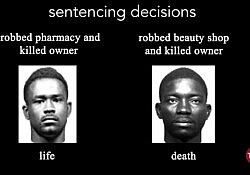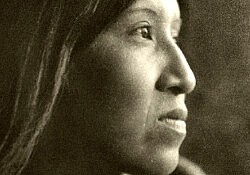For Your Feedback: Draft Land Acknowledgement
Posted by Karen Gunderson
Posted on September 1, 2022
Thank you for your interest in acknowledging indigenous people and helping to develop a multicultural Beloved Community 8th Principle) at UUSS. Below, is a draft land acknowledgment for your review and feedback. You can submit comments and suggestions below or you can contact any of the members of the Racial Justice team (Tina Chiginsky, Karen Gunderson, Meg Gunderson, Rich Howard, and Marion Randall) individually or at r.
After this feedback, there will be in-person (and or virtual) discussions. When we have a date, we will announce discussion opportunities in the weekly message and at worship.
“We acknowledge that UUSS exists on the occupied, ancestral territory of the Nisenan, Southern Maidu, and Miwok peoples. We wish to pay our respects to their Ancestors, Elders, and Relatives and to affirm their sovereign rights as First Peoples. We honor the Nisenan, Southern Maidu, and Miwok for their enduring commitment to steward this land. We recognize that they have never ceded, lost, nor forgotten their responsibilities as the caretakers of this place.
“We recognize the painful history, including oppression, displacement, and genocide, upon which the state of California was created, and how policies, systems, and structures continue to oppress and erase Indigenous peoples. This same history benefits many of us today. As we seek to develop Beloved Community, let this acknowledgement be a first step toward respect for Indigenous people’s history, lives, and voices. “
There are 13 Comments on this post.
Feel free to leave your own comment or question about this post.
More Racial Justice Updates
2/14/21
By Karen Gunderson
1/3/21
By Karen Gunderson
Reimagining Public Safety, Monday, 1/4/21
–
The next racial justice conversation, Reimagining Public Safety (first of a series on this topic) …
13 Responses to “For Your Feedback: Draft Land Acknowledgement”
Sorry, the comment form is closed at this time.



I wish that the last sentence contained an action verb (as Meg suggested about our desire and obligation to make connections with indigenous communities in our region).
I recently happened to see Stanford University’s land acknowledgement. I like that it is succent while still recognizing and honoring their indigenous people.
“We recognize that Stanford sits on the ancestral land of the Muwekma Ohlone Tribe. This land was and continues to be of great importance to the Ohlone people. Consistent with our values of community and inclusion, we have a responsibility to acknowledge, honor and make visible the university’s relationship to Native peoples.”
I appreciate and applaud the work of the Racial Justice Team. Regardless of what wording is ultimately chosen, it will be indicative of the journey that we are on to recognize, appreciate, and celebrate the diversity among and around us.
Thank you to all of you for your thoughtful comments and questions. We really appreciate having more input. In particular, we appreciate those of you who have come up with options to clarify “this same history benefits us today.” Also, Margo’s suggestion for replacing the word “responsibilities” is excellent.
To clarify a couple of things: this is a “long version” of the Land Acknowledgment which can be shortened as appropriate for whatever purpose it might be used (at service, on documents, in classes, at other events, on a sign); we don’t imagine that this version, or a shorter one, will be read at every service, event, etc.; we expect this acknowledgment may be changed as we learn and begin to do better; we hope the Worship team and other groups would “experiment” with how to use all or parts of the statement as we continue to learn together; and, this is simply an acknowledgment to raise consciousness that we hope will lead to actions, such as connecting with and developing relationships with native Americans here in the Sacramento region.
This long version includes concepts and words from other organizations both local and national, and native and non-native. We hope that it is just the beginning and, as a few of you comment, hopefully we can connect with the native American community in our region so that it reflects their perspectives.
I appreciate the sentiments and intentions behind this draft acknowledgment and also think that many of the commenters have made good points. I’d like to better understand how the acknowledgment will be used. I too think that if it is read aloud every Sunday verbatim, it will lessen the impact of the words. I notice other institutions in Sacramento who have adopted such acknowledgments and, to be frank, they often seem performative rather than meaningful. Does this make us feel better, or does it have a larger impact?
Thank you all for this most important Land Acknowledgement of the indigenous people who cared for the land which UUSS currently uses. The words and thoughts are so important and I think all of the above comments are excellent. In order to shorten the Land Acknowledgement a bit I see that in the first sentence the Nisenan, Southern Maidu, and Miwok peoples are named. Then we have the next sentence affirming their sovereign rights as First Peoples. In order to shorten the next sentence, can we, instead of naming them again, say that we honor these First Peoples for their enduring commitment, generation after generation, to steward this land up to and including the present time?
Thanks for your effort. I knew the owners of this land, Bessie and John Chesson in the early 1950’s when I served in the Air Force at McClellan AFB. They came to chapel there and were good friends to a young airman away from home. They were good people and would appreciate this effort.
I think that this is a good first step, but, as I’m sure that we don’t want it to be just empty words, it could say something about setting up a mechanism with the local indigenous cultures to work on how we can develop ways of contributing so ameliorate the effects of this theft of land & culture.
“We recognize that they have never ceded, lost, nor forgotten their responsibilities as the caretakers of this place” suggests to me that we’re assigning special responsibilities to the tribes, which wouldn’t be in line with the purpose of the land acknowledgement. Also, “responsibilities” doesn’t seem to be the intended object of all three verbs. How about something like this: “We recognize that they have never ceded, left, nor ceased to care for this place.” This would capture the important points that the Native people didn’t cede the land by treaty and that they are still here.
Instead of “This same history benefits many of us today,” something like “This same history continues to benefit many of the descendants of the oppressors and those who took land and power by force.”
Just a thought: ” Due to continuous distortion and grave disregard of Truth, knowingly or unknowingly today society benefits of this act.”
I like the acknowledgement and you were careful to include the many dimensions of the issue. However, I wonder if it might be too long. If this is read every Sunday and/or before every meeting, people might tune out and start looking at the Blue Sheet or divert their attention. But, for a shorter message they might continue to focus. I suppose I might just be projecting my short attention span after hearing this for the tenth time, etc.
I think it includes a lot, and I also wonder if you’ve had input from any people with indigenous ancestry in the congregation or in the community to ensure it focuses on what they think is important for us to acknowledge.
Thank you for your efforts in working on this. I’m glad we’ll have an acknowledgement.
Kathy,
Excellent observation about the necessity of being centered around indigenous input. At ARC, we in student senate worked with our campus Native American Center.
All or part of this wording would be appropriate for a sign installed at the Medow Project’s designated acknowledgement to indigenous people area (bend in the creek near the left of the labyrinth).
As I read it, the sentence “this same history benefits us today” needs some clarification.
How about. those of us who are white are still benefiting from this history of oppressions.